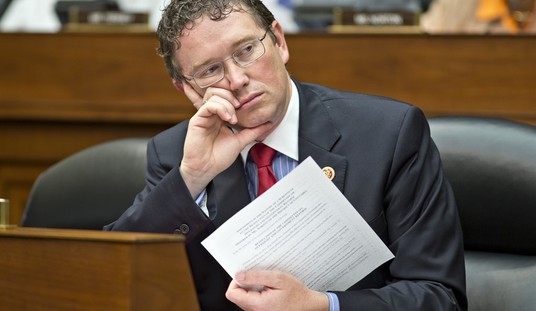The Obama transition team, soon to be the Obama administration, is concocting a reenactment of the New Deal.
A trillion dollar stimulus is going to “create” jobs, and the government will “bailout” failing industries (with additional debt funded by the Chinese, so long as they have an appetite for quickly depreciating dollars). If you think this sounds half-baked and suffers from historical amnesia, you are right.
Despite the obvious shortcomings with this approach (e.g., it’s never worked before), the Republican Party so far isn’t doing a very good job of coming up with alternatives. Plainly, they don’t like the mounds of debt. And they are skeptical of a gigantic public works projects. But what could be done instead?
There are some viable ideas, although they don’t do much for the liberal allies and Big Labor patrons of the new administration.
Lawrence Lindsay writes that tax cuts rather than government spending will have a more immediate and long-lasting impact on the economy:
The relative advantage of tax cuts over spending is even clearer when the recession is centered on the household balance sheet. Some relatively minor changes, like making the current 15 percent tax rate on dividends and capital gains permanent, would not only help household cash flow, but also put a floor under equity prices much as their introduction did in 2003. This would help protect against further wealth destruction and balance sheet deterioration.
[T]he centerpiece of any tax cut should be employment taxes: in particular, a permanent halving of the current 12.4 percent Social Security payroll tax on the first $106,800 of wages, split evenly between workers and employers. The direct revenue effect of that would be a bit under $400 billion per year, roughly in line with the present quantitative needs of the economy. It also meets our three tests of effective stimulus.
First, the funds would flow directly to households through higher take-home pay and indirectly through a reduction in the cost of employment. Economic studies conclude that the benefits of a reduction in the employer portion of the payroll tax are ultimately received by employees. But the immediate effect would be an improvement in the cash flow of credit-starved businesses (as well as being a marginal incentive to keep employment up).
Second, the funds would be extremely timely, with the benefits hitting the economy with the first paycheck after the plan was implemented.
Third, by lowering the taxation of labor, the plan would help produce a higher-employment recovery than would otherwise be the case.
Larry Kudlow advises:
I still believe the ultimate solution for all these problems — be it the carmakers, the banks, mortgages, foreclosures, or all the rest — is a significant pro-growth jolt for the economy. Economic growth will solve our problems. And the best way to move to a growth agenda is to lower tax rates across-the-board, including corporate taxes and individual taxes if at all possible.
Lower tax rates will boost asset values and reward successful producers and investors. That’s what we need. A $700 billion big-spending package merely moves money from the private sector to the government and then to a government-targeted bailout. That’s not growth. That won’t create new factories or new technologies or new risk-taking. Permanently lower tax rates will.
Republicans don’t control the agenda, but they might do a few things to help shape the Obama economic plan — or at the very least educate the public about the differences between the two parties.
First, they would be wise to put forth a plan of tax cuts and pro-growth measures even if it is unlikely to succeed. Whether as an add-on to the Obama plan or a substitute in lieu of massive public spending, the Republicans should do their best to avoid the sure-to-follow media characterization that they are the “no” party. Actually, they are the “No New Deal” party, but they need to present an alternative with a warning about the shoddy track record of the Obama approach. Kudlow and Lindsay provide an ample list of measures from which they can choose.
Second, they should insist on a full accounting of all bailout monies already spent and to be spent in the future. The banks which received the first installment of the $700B Paulson rescue funds plead ignorance or unwillingness to report on the use of those funds. The best guess is that the billions were used to fund bank acquisitions and dividends. We suspect, but don’t know for sure, that there was not much additional lending and certainly no job creation in there. The public should see just how ineffectively and unwisely the funds have been allocated. And likewise, they should learn precisely how the car companies are spending their $17B in largess. (Are we getting jobs out of any of this? Any 21st century technology?) The point should be made: this is wasted spending.
Third, Republicans should go on a “no corruption” crusade. Government is going to grow and with it the opportunities for mischief-making, graft, and favoritism. (And we’re not just talking about empty Senate seats.) Republicans would be wise to construct a “Contract for Clean Government” aimed at minimizing the special interest power plays and serving as a warning for all who seek to misuse power.
At the top of the list: toss Charlie Rangel from the Chair of the House Ways and Means Committee, require the Congressional oversight committees to disclose on their websites and at the start of each hearing the political contributions to its members from all individuals and entities within each committee’s jurisdiction, and insist on meaningful hearings about the political influence of Bernard Madoff, who gave hundreds of thousands of dollars in campaign donations and managed to avoid scrutiny. (Coincidence or getting what he paid for?)
Finally, Republicans should fight at every turn and expose the corrosive influence of Big Labor. Free trade agreements with South Korea and Colombia should be brought up for votes. Card check should be defeated or put on the back burner indefinitely. And if the Democrats object, as they surely will, the Republicans would do well to educate voters about the degree of financial and political influence wielded by Big Labor. (Blago-gate has gotten them off to a good start.)
The Democrats are committed to a path which is unlikely to lead to a robust economic recovery. Republicans don’t have the votes to stop them, but they need not assist them in their folly or help contribute to government bloat.
Instead, there’s much for Republicans to do that would be helpful to their own fortunes, but more importantly to the country’s. They’d be wise to get cracking.









Join the conversation as a VIP Member